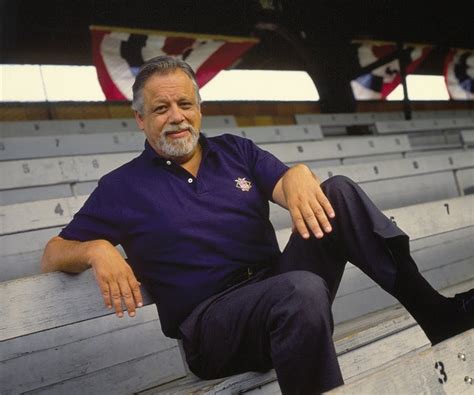A Quote by Michael Shellenberger
The industrial revolution in England was only made possible through intensified agriculture and the use of coal for manufacturing, which delivered far more energy for far less labor.
Related Quotes
There are a lot of different ways of building a prosperous society, and some of them use much less energy than others. And it is possible and more practical to talk about rebuilding systems to use much less energy than it is to think about trying to meet greater demands of energy through clean energy alone.
There's no free lunch. If you want an industrial economy, you need energy. If you want energy, it will produce pollution. You can have it in two forms. You can have it dissipated in the atmosphere - like carbon dioxide - which then you cannot recover, or you can have the waste concentrated in one small space like nuclear. That is far easier to deal with. The idea that you can be able to create renewable energy at a price anywhere near the current price for oil or gas or coal is a fantasy.
I am grateful to the fossil fuel industry for bringing us the concentrated carbon that took us through the Industrial Revolution and through the technological revolution and brought us to the gateway of the renewable energy revolution, or what I call the sunlight revolution. But that is where we must part ways. It's the natural order.
A few ideas seem to be agreed upon. Help none but those who help themselves. Educate only at schools which provide in some form for industrial education. These two points should be insisted upon. Let the normal instruction be that men must earn their own living, and that by the labor of their hands as far as may be. This is the gospel of salvation for the colored man. Let the labor not be servile, but in manly occupations like that of the carpenter, the farmer, and the blacksmith.
The information revolution has changed people's perception of wealth. We originally said that land was wealth. Then we thought it was industrial production. Now we realize it's intellectual capital. The market is showing us that intellectual capital is far more important that money. This is a major change in the way the world works. the same thing that happened to the farmers during the Industrial Revolution is now happening to people in industry as we move into the information age.
Far better to think historically, to remember the lessons of the past. Thus, far better to conceive of power as consisting in part of the knowledge of when not to use all the power you have. Far better to be one who knows that if you reserve the power not to use all your power, you will lead others far more successfully and well.
I think that has to do with my awareness that in a sense we all have a certain measure of responsibility to those who have made it possible for us to take advantage of the opportunities. The door is opened only so far. If some of us can squeeze through the crack of that door, then we owe it to those who have made those demands that the door be opened to use the knowledge or the skills that we acquire not only for ourselves but in the service of the community as well. This is something that I guess I decided a long time ago.
The cost reductions for renewable energy continue downward in a very dramatic way. We're in the early stages of a sustainability revolution in the globe that has the scale of the industrial revolution but the speed of the digital revolution. And you see it with renewable energy and you see it with LED lighting, which takes a fraction of the energy for the existing bulbs. All new lights are going to be LED. Electric vehicles. There are a lot of changes underway right now. I'm excited by the prospect, and I look forward to working in the months and years to come to accelerate this transition.



































